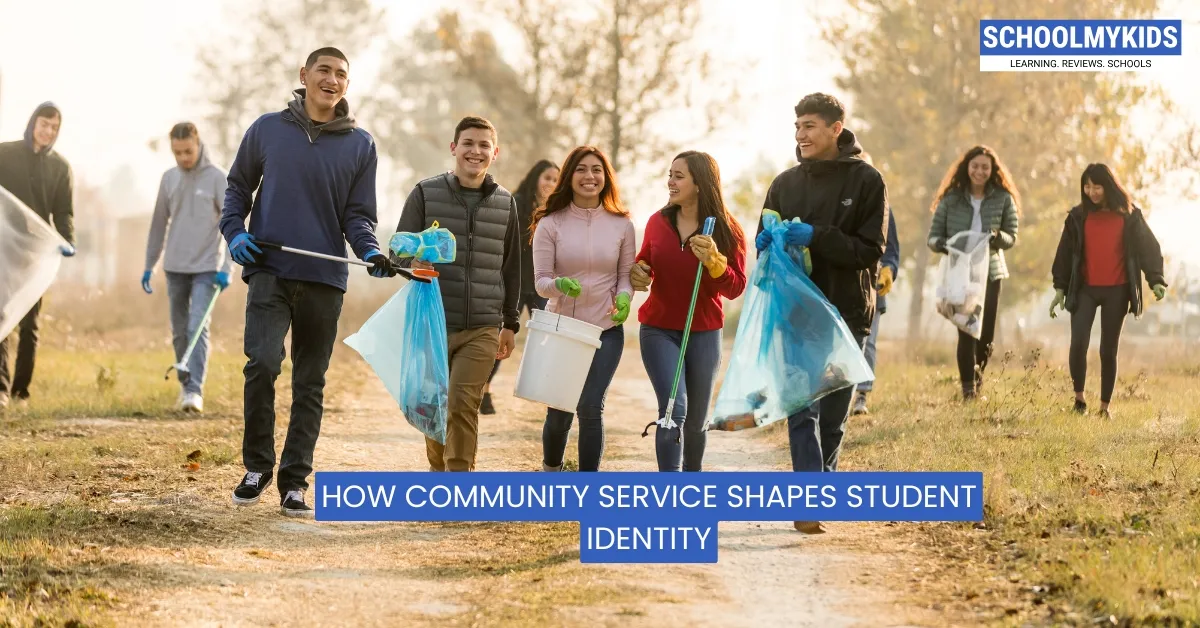Community service fundamentally shapes student identity by fostering empathy, civic responsibility, and personal growth through meaningful engagement with real-world social issues and community needs. Students who participate in structured service learning develop a stronger sense of purpose, enhanced leadership abilities, and a deeper understanding of their roles as active citizens in their communities.
Character Development and Personal Values
Community service experiences challenge students to examine their personal values, priorities, and beliefs through direct exposure to diverse social conditions and community challenges. They develop authentic empathy as they interact with people facing different circumstances and begin to understand systemic issues affecting their communities.
Moral reasoning skills strengthen as students grapple with complex social problems that lack simple solutions. They learn to consider multiple perspectives, weigh competing interests, and develop a nuanced understanding of justice, fairness, and social responsibility.
Personal resilience builds through service experiences that push students outside their comfort zones and expose them to difficult situations requiring emotional maturity and problem-solving skills. These challenges help students discover their own capabilities and develop confidence in their abilities to make positive differences.
Leadership and Skill Development
Project management abilities emerge as students organize service initiatives, coordinate volunteers, manage resources, and evaluate outcomes. They learn to set realistic goals, develop implementation strategies, and adapt plans when circumstances change or unexpected challenges arise.
Communication skills develop through interactions with diverse community members, including children, elderly individuals, people experiencing homelessness, and community leaders from different backgrounds. Students learn to adjust their communication styles, listen actively, and build rapport across social boundaries.
Teamwork capabilities strengthen as students collaborate with peers, community partners, and organizational staff to achieve shared goals. They practice conflict resolution, compromise, and collective decision-making skills essential for effective collaboration throughout their lives.
Social Awareness and Civic Engagement
Critical consciousness develops as students examine the root causes of social problems rather than simply addressing symptoms. They begin to understand how economic systems, government policies, and social structures contribute to community challenges and consider their roles in creating positive change.
Cultural competency grows through direct engagement with diverse populations and community organizations. Students learn to appreciate different perspectives, challenge stereotypes, and work effectively across cultural differences while building inclusive communities.
Civic responsibility becomes personal as students see firsthand how individual actions can impact community wellbeing. They develop an understanding of democratic participation, social justice advocacy, and the importance of active citizenship in maintaining healthy communities.
Academic Integration and Career Exploration
Service learning connects classroom concepts to real-world applications, making academic content more relevant and meaningful. Students apply scientific knowledge to environmental projects, use mathematical skills for budget management, and practice writing through grant proposals and reflection essays.
Career exploration occurs naturally as students interact with professionals working in nonprofit organizations, government agencies, healthcare systems, and educational institutions. They gain insights into career paths focused on social impact and public service.
Research skills develop as students investigate community issues, analyze data about social problems, and evaluate the effectiveness of different intervention strategies. These skills transfer directly to academic research projects and professional problem-solving approaches.
Personal Identity and Self-Discovery
Self-awareness increases as students reflect on their service experiences and consider how these activities align with their personal interests, values, and future goals. They begin to understand their own privileges, biases, and assumptions while developing more accurate self-perceptions.
Purpose and meaning emerge as students connect their actions to larger social goals and discover ways their unique talents and interests can contribute to community wellbeing. This sense of purpose often influences academic choices and career decisions.
Confidence and self-efficacy build as students successfully complete challenging projects and receive recognition for their contributions. They develop belief in their abilities to create positive change and overcome obstacles in pursuit of meaningful goals.
Long-term Impact and Lifelong Engagement
Adult civic participation rates increase significantly among students who participate in meaningful community service during their school years. They continue volunteering, vote at higher rates, and engage in community leadership roles throughout their lives.
Career satisfaction often correlates with earlier service experiences, as adults choose professions that align with social values developed through community engagement. Many become teachers, social workers, healthcare providers, or entrepreneurs focused on social impact.
Social capital development occurs as students build networks of relationships with community members, organizational leaders, and fellow volunteers that provide ongoing support and opportunities for continued engagement and personal growth.
Program Design and Implementation
Structured reflection components help students process their experiences, connect service to academic learning, and develop a deeper understanding of social issues and personal growth. Regular reflection through journaling, discussion, and presentations enhances the educational value of service experiences.
Community partnerships ensure that service projects address authentic community needs rather than artificial or contrived activities. Effective programs involve community members in planning, implementation, and evaluation to ensure mutual benefit and sustainable impact.
Recognition and celebration of student contributions help maintain motivation, build program culture, and demonstrate the value of service to the broader school community while encouraging continued engagement and leadership development.








Be the first one to comment on this story.